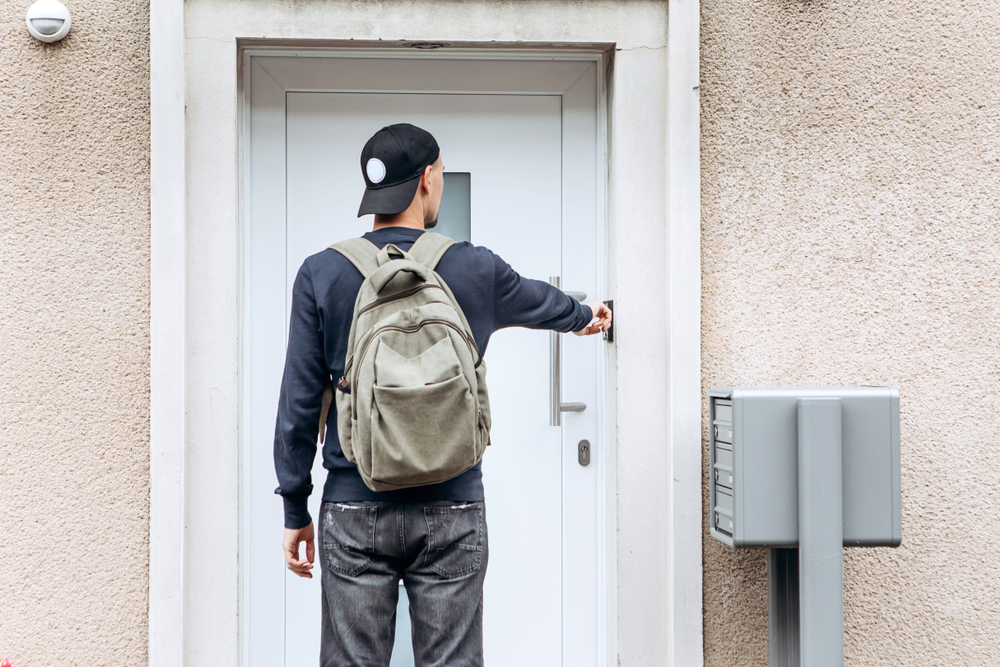What Is the Sunna When Returning to One’s Family after a Journey?
Answered by Shaykh Irshaad Sedick
Question
What is the Sunna when returning to one’s family after a journey? What is the meaning of the hadith in Bukhari, “When we were about to enter (Medina),” the Prophet (Allah bless him and give him peace) said, “Wait so that you may enter (Medina) at night so that the lady of unkempt hair may comb her hair and the one whose husband has been absent may shave her pubic region?”
Answer
In the Name of Allah, the Most Merciful and Compassionate.
May Allah alleviate our difficulties and guide us to that which is pleasing to Him.
The hadith in question relates to the Sunna of returning home after a sojourn. It was the habit of the Prophet (Allah bless him and give him peace) to allow his family sufficient time to prepare for his arrival. Arriving home after a journey may catch the family off guard and in an unkempt state, so the Prophet (Allah bless him and give him peace) would plan his arrival at home to coincide with the mornings or early evenings. These are times when people are usually at home and able to prepare themselves and their homes to welcome travelers, and Allah knows best.
The specific reference to personal hygiene in the above hadith refers to the eagerness of the then newly betrothed Companion, Jabir Ibn Abdulla (Allah be pleased with him), who was eagerly rushing home to be with his wife. The Prophet (Allah bless him and give him peace) advised him to wait to give his wife a fair chance to prepare herself for her husband, and Allah knows best.
The Sunna way to Return Home After a Journey
Anas Ibn Malik (Allah be pleased with him) reports: “The Prophet never arrived home during the [late] night. He would only come back in the morning or at the approach of the evening.” [Bukhari]
The Prophet (Allah bless him and give him peace) deliberately chose the above times for arriving home. In the time of the Prophet (Allah bless him and give him peace) and the Companions (Allah be pleased with them), no contact could be made to inform the people back home of the traveler’s arrival time so that they would be ready to receive them.
Arriving in the middle of the night, when one’s family is not expecting such an arrival, would likely be inconvenient. They would likely be asleep, and the home would probably not be in the ideal state to give the returning travelers a welcome that the family would be happy with. Waking them up might startle them, even though they would be happy to receive the returning travelers. It would be better to inform them of one’s arrival so the family could be prepared to welcome the travelers back. The Prophet’s conduct in arriving back home after a journey ensured that.
Returning to the Masjid Before Home
Ka’b Ibn Malik (Allah be pleased with him) reports: “The Prophet never returned from a journey except in midmorning. He would start at the mosque, offering two units of voluntary prayer. Then he would sit for a while before going home.” [Bukhari; Muslim]
Ka’b Ibn Malik (Allah be pleased with him) also reports: “When the Prophet arrived back from a journey, he would start at the mosque where he would offer a voluntary prayer. He would then sit down for a period, looking into people’s needs and receiving those who came to welcome him back.” [Bukhari; Muslim; Ahmad; Abu Dawud]
I pray this is of benefit and that Allah guides us all.
[Shaykh] Irshaad Sedick
Checked and Approved by Shaykh Faraz Rabbani
Shaykh Irshaad Sedick was raised in South Africa in a traditional Muslim family. He graduated from Dar al-Ulum al-Arabiyyah al-Islamiyyah in Strand, Western Cape, under the guidance of the late world-renowned scholar, Shaykh Taha Karaan.
Shaykh Irshaad received Ijaza from many luminaries of the Islamic world, including Shaykh Taha Karaan, Mawlana Yusuf Karaan, and Mawlana Abdul Hafeez Makki, among others.
He is the author of the text “The Musnad of Ahmad ibn Hanbal: A Hujjah or not?” He has served as the Director of the Discover Islam Centre and Al Jeem Foundation. For the last five years till present, he has served as the Khatib of Masjid Ar-Rashideen, Mowbray, Cape Town.
Shaykh Irshaad has thirteen years of teaching experience at some of the leading Islamic institutes in Cape Town). He is currently building an Islamic online learning and media platform called ‘Isnad Academy’ and has completed his Master’s degree in the study of Islam at the University of Johannesburg. He has a keen interest in healthy living and fitness.
